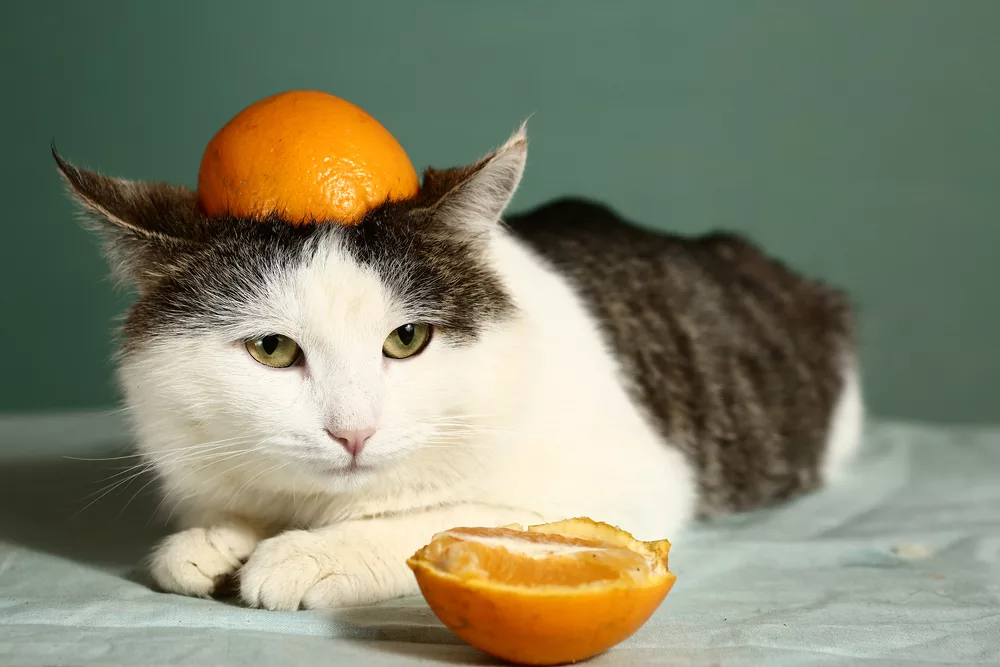Struggling to get your puppy to eat can be a frustrating experience. Not knowing how can I get my puppy to eat is a challenging situation, but understanding the root causes and exploring effective solutions can make a huge difference. This guide delves deep into why puppies may refuse food, from health concerns to picky eating habits. It offers practical tips to encourage your furry friend to eat nutritious meals. Whether it’s evaluating food quality, creating a positive feeding environment, or consulting professionals for advice, this comprehensive guide covers everything.
TL;DR: If your puppy turns up its nose at mealtime, don’t despair! From identifying why it’s not eating to implementing strategies to make food appealing, this guide is your roadmap to transforming your pup into a healthy eater. Please keep reading to uncover expert advice and practical tips to ensure your puppy gets nourishment.
Understanding Your Puppy’s Reluctance to Eat
Determining why your puppy lacks interest in food is the first step towards resolving the issue. Dr. Aycock-Williams suggests letting your puppy try different foods, including canned and dry options, to discover their preferences. Making mealtime exciting and using positive reinforcement can also entice your puppy to eat. If these attempts don’t work, a consultation with your vet might be necessary to rule out any underlying issues.
Common Reasons Why Puppies Refuse Their Food
Refusing to eat can stem from numerous factors, with health and nutritional needs varying significantly between small and large breed puppies. Adult dogs, especially those under 20 pounds, reach their adult size quickly, necessitating a diet that supports rapid growth. A puppy’s loss of appetite could signal a need for a diet adjustment or a check on their fat reserves and overall health. Understanding these distinctions is crucial for managing picky eating and ensuring your puppy remains healthy.
Stress or Anxiety Can Lead to a Loss of Appetite
Just like humans, puppies can experience a decrease in their desire to eat when they’re feeling stressed or anxious. Identifying and addressing the sources of these feelings can help restore their appetite and ensure they’re receiving the necessary nutrients for healthy growth.
Dental Pain or Oral Discomfort Might Be the Culprit
Oral discomfort, including dental pain and the discomfort associated with teething, can make eating a painful experience for puppies. The discomfort often results in a reluctance to eat dehydrated foods, which can be hard on their sensitive gums and emerging teeth.
Changes in Environment or Routine Can Affect Their Eating Habits
A puppy’s environment or routine significantly affects their eating habits. Sudden changes can unsettle them, leading to a temporary disinterest in food. A daily routine is vital to maintaining healthy eating habits and mitigating the harmful effects of an inconsistent schedule.
Stick to a routine to take control of your health and well-being. Say goodbye to unpredictable mealtimes and hello to a happier, healthier you. Start today by committing to a consistent routine and see the difference in a healthier lifestyle.
Evaluating Your Puppy’s Food Quality and Freshness
The quality and freshness of the food you offer your puppy can significantly impact their willingness to eat. Stale or low-quality dry kibble may not be appealing, underscoring the importance of providing fresh, high-quality meals that meet their dietary needs.
Is Your Puppy’s Food Appealing and Nutritious?
Ensuring your puppy’s food is nutritious and appealing is essential for encouraging them to eat. Unappetizing food can lead to an upset stomach, making them even more reluctant to eat. Finding the right balance of nutrition and taste is critical.
The Impact of Food Quality on Your Puppy’s Appetite
The quality of dry kibble can directly affect your puppy’s appetite. High-quality, fresh food is more likely to entice your puppy to eat, ensuring it receives the vital nutrients needed for growth and development.
Practical Solutions to Encourage Your Puppy to Eat
Encouraging your pup to eat involves a combination of strategies, from experimenting with different types of food to consulting a vet if your puppy isn’t eating. Remember, transitioning to adult food should only occur once your puppy has stopped growing, and this guide offers insights into making mealtime a positive experience for your growing dog.
Experimenting with Different Types of Puppy Food
Transitioning to adult food is a significant step that should happen when your puppy has stopped growing. Until then, exploring a variety of puppy foods can help you find what appeals most to your puppy and ensure that it receives the necessary nutrients for proper growth.
Rotating Foods and Introducing Tasty Toppers
Adding chicken broth or other tasty toppers to your puppy’s diet can make meals more appealing. Be cautious with human food, as it’s not always suitable for puppies. These additions should enhance the flavor of their meals without compromising nutritional value.
The Benefits of Warming Up Your Puppy’s Meals
Warming up your puppy’s meals can make the food more appealing by enhancing its aroma and taste, which might help if your puppy has an upset stomach. This simple technique can significantly improve their appetite and enjoyment of mealtime.
Creating a Positive and Calm Feeding Environment
A consistent and stress-free environment or routine is crucial for encouraging puppies to eat. Changes in their surroundings or daily schedule can temporarily disrupt their eating habits, but maintaining a calm atmosphere can help them adjust and return to regular feeding patterns.
Consistent Feeding Times and Locations Can Help
Establishing a routine with consistent feeding times and locations can provide a sense of security for your puppy, encouraging them to eat their food. If your dog isn’t eating, observing signs to watch and consulting a veterinarian for advice can help identify why your dog stops eating and adjust your dog’s eating habits accordingly.
Reducing Distractions and Stress During Meal Times
Minimizing distractions or stress is essential to help puppies who get anxious during meal times. Make sure the environment is calm and quiet. Keep the sentences short and only include necessary information. Use everyday language and avoid acronyms, jargon, or legal terms. Use active voice to increase clarity. Remember to put the most critical information first. Creating a quiet, serene space where your puppy can eat without interruptions from loud noises or the hustle and bustle of household activity can significantly increase their comfort levels. This calm setting encourages them to eat and strengthens their association with mealtime as a positive, stress-free experience.
The Role of Exercise and Health in Your Puppy’s Appetite
Regular exercise plays a significant role in stimulating a young puppy’s appetite. Engaging your puppy in playful activities or gentle leash walks before meal times can increase their hunger. Such exercises not only contribute to their physical health but also ensure they approach their meals with enthusiasm. It’s a simple yet effective method to encourage a healthy eating habit, setting a solid foundation for their growth and well-being.
Ensuring Adequate Exercise for Your Puppy
Young puppies thrive with the right amount of exercise. It’s essential for their development, not just for their physical health but also for stimulating their appetite. Activities tailored to their age and size, like short walks and play sessions, ensure they receive the necessary exercise. This balance of activity and nutrition is crucial for their growth, ensuring they consume the nutrients essential for healthy development.
Recognizing Signs of Illness or Dental Issues
Dental issues can significantly affect a puppy’s willingness to eat. It is crucial to check your dog’s mouth for signs of loose teeth or any indication of discomfort. A regular check-up at the vet can help identify these issues early on. If your dog is not eating, it may signal dental pain or other health concerns, underscoring the importance of regular dental care and health monitoring.
When to Seek Veterinary Help for a Puppy That Won’t Eat
If your puppy refuses to eat, it’s essential to consult a veterinarian. If your puppy is experiencing eating problems, it’s important to seek professional advice. A qualified expert can identify whether the issue is due to a health concern that requires immediate attention. Early intervention helps prevent complications and promotes a healthy diet for pets.
Best Practices in Puppy Nutrition
Understanding pet food options is crucial in providing the best nutrition for your puppy. It can be challenging to navigate various diets and ensure the food is appealing and meets their nutritional requirements. Staying informed about the ingredients and nutritional value of the pet food you choose will help maintain your puppy’s health and happiness.
Deciphering How Much and How Often to Feed Your Puppy
Similar to human babies, puppies need several small meals throughout the day. Determining the right amounts of food and setting a consistent feeding schedule is crucial to avoiding picky eating habits. Leaving food out for only 10 to 20 minutes during meals helps establish a routine, ensuring they consume the necessary nutrients for their growth.
Changing from the Puppy Food to Adult Dog Food: When and How
Transitioning your puppy to eating adult dog food should be an incremental process to avoid upsetting their stomach. Mixing some of the new food with their current pup’s food over several days can make the switch smoother. Consulting with a veterinarian about the best feeding strategy for your dog ensures they continue to receive the nutrition they need during this critical growth phase.
Understanding the Nutritional Needs of Your Growing Puppy
Providing the right pet food is essential for your puppy’s growth and development. Puppy nutritional needs change as they grow, so choosing a diet that supports their health at every stage is vital. High-quality puppy food rich in required nutrients helps build a strong foundation for their overall well-being.
Addressing Common Myths and Concerns
- There are several common myths and concerns regarding puppies not eating. One common myth is that puppies eat when hungry, so there’s no need to worry if they skip a meal. However, this is only sometimes the case, and it’s essential to monitor your puppy’s eating habits to ensure they are getting the proper nutrition.
- Feeding puppies adult dog food can harm their health. Puppies need different nutrition than adult dogs. It’s crucial to give them appropriate nutrition to grow and thrive. Vegetarian or vegan diets are not healthy for puppies and can lead to health problems. As a responsible pet owner, prioritize your puppy’s health by giving them a balanced and nutritious diet.
- Puppies may not eat for reasons such as not liking the food, an upset stomach, or stress. Urgent attention is essential, and a vet’s advice may be necessary to ensure proper nutrition and care.
Debunking Myths About Puppy Nutrition and Feeding
Puppy nutrition is fraught with myths that can complicate feeding decisions. It’s crucial to separate fact from fiction to provide the best care for your pet. Consulting with a veterinarian can offer clarity and guidance, helping you navigate the complexities of puppy nutrition confidently.
Managing a Finicky Eater Without Resorting to Unhealthy Habits
Dealing with a picky eater pet puppy can be challenging, but resisting indulging in unhealthy feeding practices is essential. Offering various healthy options and maintaining a consistent feeding schedule can help manage picky eaters. Observing your puppy’s food bowl habits can also provide insights into their preferences, allowing you to adjust their diet accordingly.
When to Consult a Professional
When concerns arise about your puppy’s eating habits or health, consulting a professional is always the best action. Veterinarians can provide valuable insights and recommendations, ensuring your puppy receives the care it needs. Early intervention can make a great difference in its well-being.
Identifying Signs That Indicate a Need for Veterinary Attention
As your puppy grows, it’s important to stay vigilant for signs needing veterinary attention. Changes in eating habits or a sudden disinterest in food can signal underlying health issues. Regular check-ups and good communication with your vet can ensure your furry friend’s health and happiness.
Fading Puppy Syndrome and Other Red Flags
Fading Puppy Syndrome and other red flags, such as lack of appetite or unusual lethargy, require immediate veterinary attention. Recognizing these signs early and seeking professional help can be crucial for your puppy’s survival. Proactive care and monitoring are vital to addressing any health concerns promptly.
Wrapping Up: Nurturing a Healthy, Happy Eater
As the journey with your puppy progresses, it’s essential to reflect on the strides made toward establishing a balanced and nutritious diet. Nurturing a healthy, happy eater is ongoing, demanding patience, understanding, and consistency. It’s not just about the empty or full food bowl; it’s about ensuring every meal is a step towards long-term health and happiness. Celebrating the small victories and learning from the challenges will pave the way for a thriving relationship between you and your pup, centered around well-being and mutual trust. a
The Journey Towards a Balanced Diet for Your Puppy
To ensure a balanced diet for your puppy, you should choose food that specifically caters to their unique nutritional needs. It is crucial to understand that a puppy has only appropriately eaten if their diet supports their rapid growth and development. Factors like excessive licking, a broken tooth, or signs indicating your puppy is sick should prompt an immediate evaluation of their diet and health. As pups develop, their dietary needs evolve, requiring a vigilant approach to their feeding regimen to ensure they receive the nourishment they need for a healthy start in life.
Celebrating the Small Wins in Your Puppy’s Eating Habits
Every puppy is unique, some being fussy eaters or slow to show interest in their regular food. Observing a puppy turning their nose away from their food can be disheartening. Still, it’s essential to recognize the small wins, like a pup showing interest in training treats or finally accepting a new type of food. These moments are significant milestones in addressing stress and anxiety, mouth injuries, or other obvious sources of pain that may make a puppy reluctant to eat. Even slightly increasing food intake is a positive sign of maintaining a healthy caloric intake. Always be ready to consult with your veterinarian if you notice signs of illness like gastrointestinal parasites or kidney failure, as these could severely impact your pup’s appetite and overall health.








